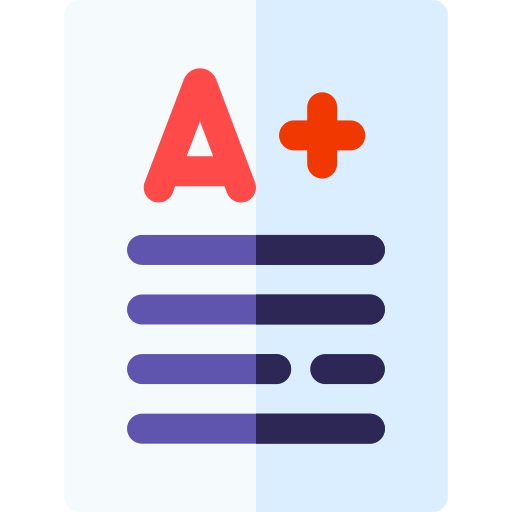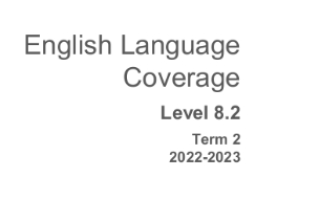بوربوينت قواعد ووظائف نهاية الفصل الثاني اللغة الإنجليزية الصف العاشر والحادي عشر Elite
The Coverage, Grammar and Functional Language Teaching Resource
The slides within this resource, although detailed, are designed to be used as a starting point for teachers to construct lessons around the language points that are explored here. The slides are intended to be used individually as a resource within a lesson and to be incorporated as part of instruction incrementally throughout the term to ensure that students have been exposed to all the language points in the mverage ahead of their end of term exam. Therefore. the PowerPoint should not be presented at a single event or in its entirety. Some functional language points may overlap with grammatical points in the coverage, and in that case, it is possible to combine slides. However, this resource should be
considered to be a collection of individual slides that teachers can use to enhance stucknts' learning
Within this document, you will find information about the coverage for this term. The lexis family that assessrnents will contain is mentioned as well as the particular grarnmatical and functional language points that will be tested in the exams at the end of this terrn. In the preparation sections, you will find examples and explanations for the grammatical and functional language points that will be assessed this term
The grammar preparation section has an example sentence that illustrates the grammatical point. It follows this with an explanation of the meaning of the example sentence. Next, the specific grammatical structure used within the example sentence is detailed followed by an explanation of the circumstances under whidl the particular structure is used. More example sentences using the structure are given at the end of the slide. In the functional language preparation section. there are examples of the particular language point followed by an explanation of how the particular are used. In the associated grammar section, language points that comprise the structure or can be used to in conjunction with the language point to express the stipulated function are detailed
The business proposal will have been written by the 1 stof September, at which point we can assess the benefits to our company
The person is sayirg that befcxe a certain time the future (1 September), which is the the proposal will be available analysis
Grammatical structure Passives: future perfect passive
object will have been past participle
Future perfect passive is used to talk about actions or events that wil be by a certain moment in the future. We use the passive voice to emphasize the action, the doing the acton. by moving the object of the sentence into the subject
The order delivered by the time he receives his invoice
Regarcness Of cost, speaker will buy the im
Clefting and fronting
No matter' relaive pronouns
•Fronting is to emphasize the informatiOn in the first clause 'No matter how In this case. using 'NO matter' emphasizes that regardess Of the drcumstances' the ouEome WII be the same. Clefting' means a single is divided across tw'0 clauses. We use deft sentences to connect what is already understood to what is new to the listener Emphasis is placed on the informaibn by moving it to the beginning of sentence
what you say, I will still attendng tme meeting
No matter the risk, it certainly wcrth a try to will eventually dose down, much you try and save the business
over 50 people attended the party
It is comrnon knowledge 50 went b party
Passive reporting statements
It + passive reporing verb + (that) + clause
subject + passive reporting wrb + b + infintive
Passive reporting staternene are used to hformation where the source is unknown or mt important The use of the passive structure obscures the source of tie information. ReporEd are often uæd in a formal style or to report
the sports cenEr had doæd down
It was announced that New Year sales begin bday
It is thouaht that the rain will continue into next week
football camp. I wouldn't be a professional player
exam, I would have a better mark
'ieights, I would have to Jebal Jais
The person becarre an important football player (present result) because they went to a football camp (past event). The speaker didn't revise (past event) You got a bad mark (present result). The speaker is scared of heights (present condition - now or always), so did not go on the trip (past result — bebre now)
Mixed conditional
Past condibon I present result - If + past would/wouhn't + infinitive
Past result / present condition - If + past simple, would have + past participle
We use mixed mnditionals with past perfect in the if clause to talk about the present resuts of past events. The speaker became a botbal player (present result) because he went to the football camp (past action). We also use b talk about an magnary stuation in the past and ts probable result in present If the speaker had revised (but they ddn't revise), they would have got a good mark (but they got a bad mark). We use mixed conditionals wth past simple in the •if dause b talk about imaginary present situatöns and
their probable (but past results. If the speaker wasn't afraid of heights (but they are), tley would have gone on a past trip to Jebal Jais (but they didnt go)
If I'd worked harder at school, I'd have a better job now
She would be here now if anyone had told her about the event
. He acted as- if- he- owned this business
Adam didn't own the tilsiness but like did
Structure equivalent to conditional
as if / as + past tense dause
We can use 'as if / as though' and a past simple chuse (With a present when express that something is either being presented as sornething it is not or to talk about we kno•w be impossible
motivatimal speech was amazing. tt is the of everyone in audie
Molly acts as if were
Confidently raising his hand, it looked as throgh he knew the answer
will you find business success
Success in business might happen but the subject must work hard first
Cleft æntences
Only if + first mndiional / æcond conditional (with inversion)
We use the first conditional with only' to blk about a present coryiition flat has a future result The condition (success in busness) emphasized by putting it first in the entence. The use of •Only if strengthens condition. inversion, the verb 'will' is placed before the subject you'
we soon, will we be on tme br wcrk. (first cmdtional)
I won a million dirtwns, would I trawl arourxi the world. (second conditional)
Only -if you do well in your exams, wil we you a new (first


